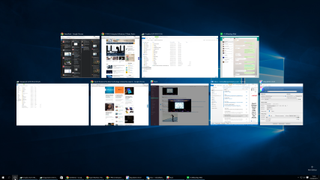Virtual Cable offers VPN-free remote desktop access
Users can access remote desktops securely with just a browser

Connection broker software vendor Virtual Cable has signed a technology partnership with remote access software company Glyptodon that’ll enable users to log onto virtual desktop and application sessions without a VPN.
Virtual Cable offers software that enables administrators to manage and provision virtual desktops and applications. Glyptodon offers open source software that lets users log into remote sessions without a VPN. The two companies developed an extension that integrates the two, enabling VPN-free remote desktop sessions for Virtual Cable users.
Available as a subscription, Virtual Cable's UDS Enterprise software enables companies to set up virtual desktop infrastructure (VDI) services quickly, supporting Windows and Linux virtual desktops. Administrators can manage multiple desktops from a single dashboard, and it includes support for user access management via several authentication systems. Virtual Cable is especially popular with higher education and public administration customers.
Glyptodon's solution, called Glyptodon Enterprise, is a commercially supported version of Apache's Guacamole open source remote access software that provides browser-based access to remote desktops. The developers of the original Guacamole software formed Glyptodon and offer their implementation of the open source product free for personal use.
The companies expect a wave of demand for easily accessible remote desktop services due to the continued work-from-home trend during the pandemic. "With so many companies planning to continue remote work in some form after the pandemic, enterprises need simple, secure solutions that can scale quickly and affordably," said Glyptodon's CEO Mike Jumper.
VPNs have concerned some IT decision-makers, who worry about the security risk and overhead cost of running multiple devices on their premises.
Get the ITPro. daily newsletter
Receive our latest news, industry updates, featured resources and more. Sign up today to receive our FREE report on AI cyber crime & security - newly updated for 2024.
Danny Bradbury has been a print journalist specialising in technology since 1989 and a freelance writer since 1994. He has written for national publications on both sides of the Atlantic and has won awards for his investigative cybersecurity journalism work and his arts and culture writing.
Danny writes about many different technology issues for audiences ranging from consumers through to software developers and CIOs. He also ghostwrites articles for many C-suite business executives in the technology sector and has worked as a presenter for multiple webinars and podcasts.





